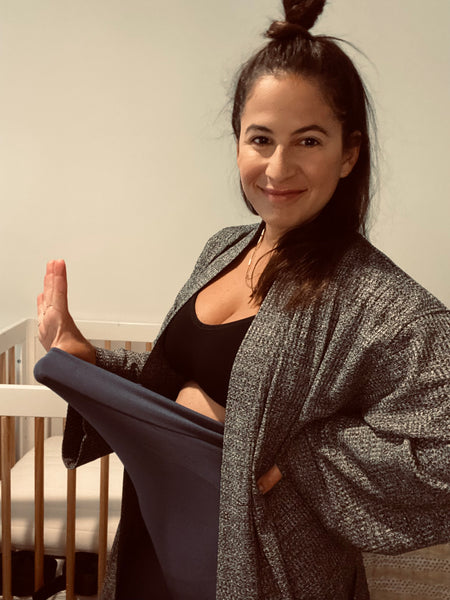Focusing on the light at the end of the tunnel blocked me from appreciating the joys right in front of me
]]>Emily Getz is the Founder of Day 1
The cliche that I hear from people in my life who are on the other side of their infertility journey, the one where you would not trade the experience for anything in the world, is powerful, and why wouldn’t it be?
Gazing into the eyes of your dream baby after years of traveling down that impossible road makes appreciating the journey that much easier.
But what about those of us still on the journey? Do we have to wait until the end until we can go back to loving our life? What about those whose end doesn’t even involve a baby? Then what?
For myself, as I am sure many, focusing on the light at the end of the tunnel blocked me from appreciating the joys right in front of me.
I was exhausted at living a life with the thought that I would only be happy once I delivered my baby. I felt paralyzed and riddled with anxiety. So, I decided to do the work needed to change the narrative.
Finding Strength Through Adversity

These past two years have been brutal, to say the least. In October of 2019, when I was six months pregnant with our second child, my husband and I lost our baby girl, Ruby. Exactly two weeks later, my father passed away and my world, (which was already crumbling before my eyes), completely fell apart.
Fast forward two years of trying unmedicated (during COVID might I add), one IUI, and three IVF rounds resulting in two fresh embryo transfers and one ectopic pregnancy causing the removal of my right fallopian tube — a mouth full right — I find myself in the midst of another big decision on what to do next.
"Focusing on the light at the end of the tunnel blocked me from appreciating the joys right in front of me."
I am sure the details of my fertility story sound intense, sad, and lonely, and I’m not going to lie, it is all those things and more. But it has also been empowering, eye-opening, and inspiring all in the same breath and I can say this not having reached my goal YET.
Sure, there are moments when I can’t see the light, when I ask why this is happening and when my dream feels impossibly far away. But I keep coming back to how, without this experience, I wouldn’t have evolved into the person I am today, and for that I am grateful.
Working to Shift the Narrative

However, this new perspective did not come easily. I attribute much of this shift to the mindset work I have been doing over the past year, which consists of working with a mindset coach, learning about the spiritual laws of the universe, and a daily journaling routine.
Fertility protocols tend to focus on hormone injections, cycle monitoring, and supplements. But I believe mindset is the missing piece needed in every protocol — I’ll have a side of mindset coaching, with 75 units of Menopur, please.
I used to look at Ruby as only a painful memory, representing the life I should have had. But now, l look at her as giving me the gift of purpose, propelling me forward in a new and beautiful direction.
What if everything is working out exactly as it should be? It might sound a bit woo-woo, but what I’m trying to convey is that you have a choice on how you view your story, your life.
Growing from Loss

Emily Getz wearing the Knix Waffle Robe, Good to Go Seamless Bra, and BlissFit Maternity Leggings
Putting my mindset work into practice, in May of 2021, I launched Day 1, a one-of-a-kind fertility network, comprised of an engaged community, a podcast, marketplace (fertility support gifts), and an exclusive membership program (which will be available to join in January 2022).
Day 1 is the baby that grew from my loss. It represents my calling and a purpose that in helping others has, in turn, helped me in ways I never could have expected.
"I keep coming back to how, without this experience, I wouldn’t have evolved into the person I am today, and for that I am grateful."
If I read this article two years ago, I probably would have rolled my eyes at the idea of mindset and manifestation, but then again I had not suffered any real loss up until that point.
Now here I am ordering myself a pair of Knix Maternity Leggings to manifest that I will be pregnant soon.
The idea of only being able to appreciate my journey once I was at the finish line didn’t work for me, so I shifted my own paradigm. If you’re open to experiencing the ups and the downs of the road you’re on rather than focusing solely on the outcome, you may just find a strength in yourself you never knew existed.
